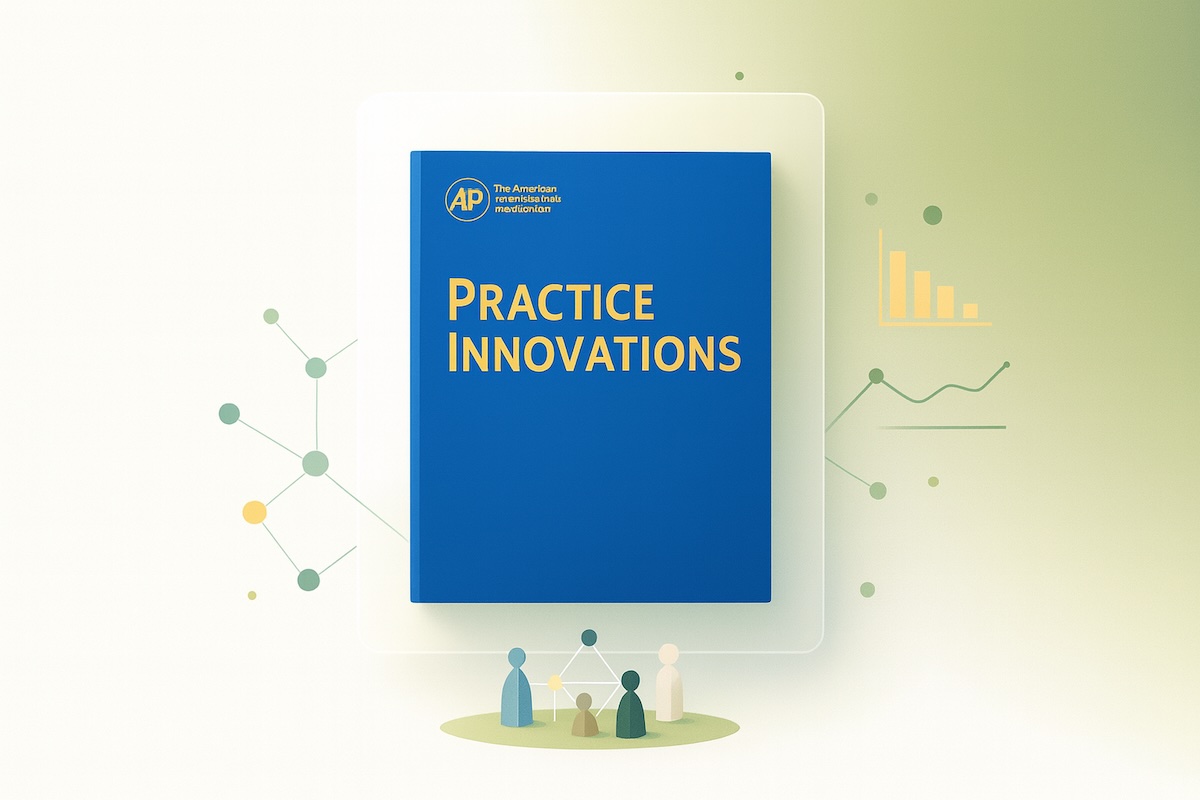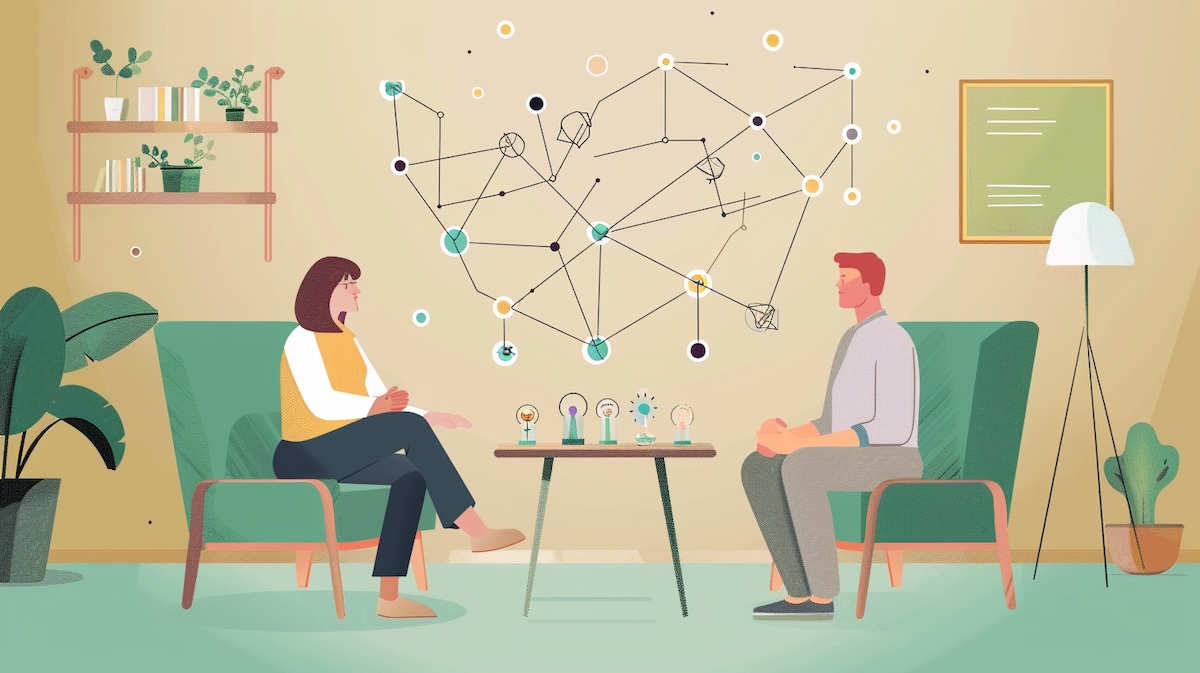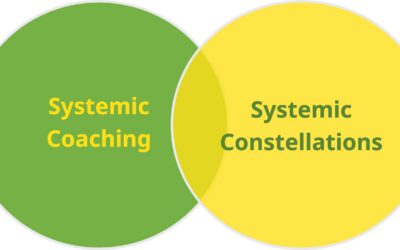Individual family constellations: new research shows promising results in relieving depression, anxiety and stress

We’ve previously published a summary of research from the University of Groningen on the effectiveness of family constellations (2021) and now a crucial new piece of research in the field of constellations has been published in August 2025: according to an article published in the American Psychological Association (APA) journalPractice Innovations, individual family constellations alleviate depression, anxiety and stress.
The APA (or American Psychological Association) is the largest and most prestigious professional and scientific organisation for psychologists in the USA.
We recall that a meta-analysis by the University of Groningen (2021) found that the family constellation method has a moderate effect on overall mental health indicators and that a small proportion (around 5-8%) may experience short-term negative side effects. However, the quality of the studies was uneven and more randomised control trials were recommended.
What will research add in 2025? It is one of the first quantitative studies specifically on the individual format in a real-life clinic – thus filling an important gap that previous work did not cover.
Survey results
Article: Exploring the effectiveness of individual family constellations for adult psychoemotional distress: A quasi-experimental study.
Magazine: Practice Innovations (American Psychological Association). Published online: 28 August 2025. DOI: 10.1037/pri0000298 . ResearchGate
What was done?
- Participants: 75 adults in Portugal with psychoemotional distress (e.g. mood, anxiety, tension).
- Format: an average of ~7.5 individual family constellation sessions in a routine outpatient visit.
- Measure: DASS-21 or self-rated symptoms (depression, anxiety, stress).
- Design: quasi-experimental (i.e. no random comparison group) – one group, measurements before and after intervention.
Main results:
✅ Depression decreased with a large effect size (d≈1.04, or mean decrease of one standard deviation or more),
stress decreased with a large effect size (d≈0.93, or mean decrease of almost one standard deviation),
anxiety decreased with a medium-large effect size (d≈0.67, or mean decrease of just over half a standard deviation).
✅ 88% of participants achieved a reliable clinical improvement(Reliable Change Index, RCI).
✅ Tolerability: the intervention was generally well tolerated; however, ~8% of participants experienced reliable deterioration, highlighting the need for follow-up and risk monitoring.
What is a “d”? It is the effect size (Cohen’s d), which shows how large the average change is compared to the typical dispersion (standard deviation) of the group. A simple rule of thumb: 0.2 = small, 0.5 = medium, 0.8 = large (and above = very large).
What is the standard deviation? It is a measure of the ‘typical variation’ of a group: how much people’s scores deviate from the average. A simple rule of thumb: about 2/3 of people’s scores fall within ±1 standard deviation of the mean.
Conclusion: individual family constellations appear to be an effective and brief intervention, but the authors stress the need for further randomised control trials (RCTs).

What does this mean for the constellation customer?
Simply put: individual family constellations are a private and focused way of exploring what keeps you stuck in anxiety, tension or low mood – and how to safely reverse these patterns.
Time: the process usually takes a few months (around 7-8 meetings).
Results: most participants experienced significant symptom relief; however, each pathway is personal. If you have very severe symptoms, you are better off consulting an experienced therapist/psychologist/psychiatrist – the constellation method may not be suitable or sufficient for you.
Strengths and limitations of the study
Strengths: specific clinic, clear measurement, large effects in reducing depression and stress, high clinical improvement and low discontinuation.
Limitations: lack of control group and therefore cautious causal inference; results need to be confirmed by RCTs and longer follow-up. Results are valid primarily in the Portuguese outpatient clinic context; wider generalisation needs confirmation in other countries and populations.
Quick comparison between 2021a and 2025a survey
|
|
2025 Study published in APA |
2021 University of Groningen study |
|
Sample from |
75 adults, Portuguese outpatient clinic |
12 studies, different samples |
|
Design |
Quasi-experimental, one group, before-because |
Systematic review & meta-analysis |
|
Metric |
DASS-21 (depression, anxiety, stress) |
Different psychometric scales |
|
Effects |
d≈1.04 (depression), 0.93 (stress), 0.67 (anxiety) |
moderate overall effect (Hedges’ g≈0.53) |
|
Safety |
discontinuation ~6%; deterioration ~8% |
side effects 5-8% (minor/major) |
|
Conclusion |
Promising brief therapy, RCTs needed |
Efficacy exists, but more research needed |
Summary
A paper published in the psychology research journal APA: Practice Innovations suggests that individual family constellations can be an effective, well-tolerated and relatively brief intervention to relieve depression, anxiety and stress in adults. At the same time, the scientific standard remains demanding: controlled and longer follow-up studies are still needed to assess durability and compare with alternative interventions.
💚 A t Belong, we welcome and look forward to this kind of research, which confirms from a scientific perspective what has long been empirically clear – the use of the constellation method in the right situation and with professional guidance has a great healing effect.
Sources
📗 Ramos, S., & Ramos, JA (2025). Exploring the effectiveness of individual family constellations for adult psychoemotional distress: A quasi-experimental study. Practice Innovations. advance online publication.
https://doi.org/10.1037/pri0000298
📗 Institute of Integrated Sciences:
📗 Konkoly Thege, B., Petroll, C., Rivas, C., & Scholtens, S. (2021). The Effectiveness of Family Constellation Therapy in Improving Mental Health: A Systematic Review.Family Process, 60(2), 409-423.
https://pure.rug.nl/ws/portalfiles/portal/177231226/famp.12636.pdf
📗 DASS-21 psychometrics and limitations of use (selected references): Lee et al., 2019; Thiyagarajan et al., 2022. PubMed+1
📗 RCI (Jacobson & Truax, 1991) framework for clinically important change. College of Sciences
On the same topic
EPKA’s first summer days – History of Estonian constellations made in Kernu Manor House
The first EPKA Summer Days brought together the Estonian constellation community in Kernu Manor on 8-10 August 2025: a joint constellation, master classes and the start of a new era of collaboration.
EPKA Big Event 2025
The EPKA Summer Constellation Cluster Seminar 2025 at Kernu Manor is the highlight event of the year, bringing together constellation professionals and enthusiasts, offering deep learning, valuable experiences and inspiration.
Coaching with systemic constellation: the interaction of two methods
Coaching with Systemic Constellation helps leaders and teams to overcome hidden obstacles and create clarity in the midst of change.
Join Belong Newsletter
Want to keep up to date with what we're doing?
Subscribe to our newsletter and we'll keep you up to date with important news!
PS We don't like spam either. We keep your data carefully and do not share it with third parties.






